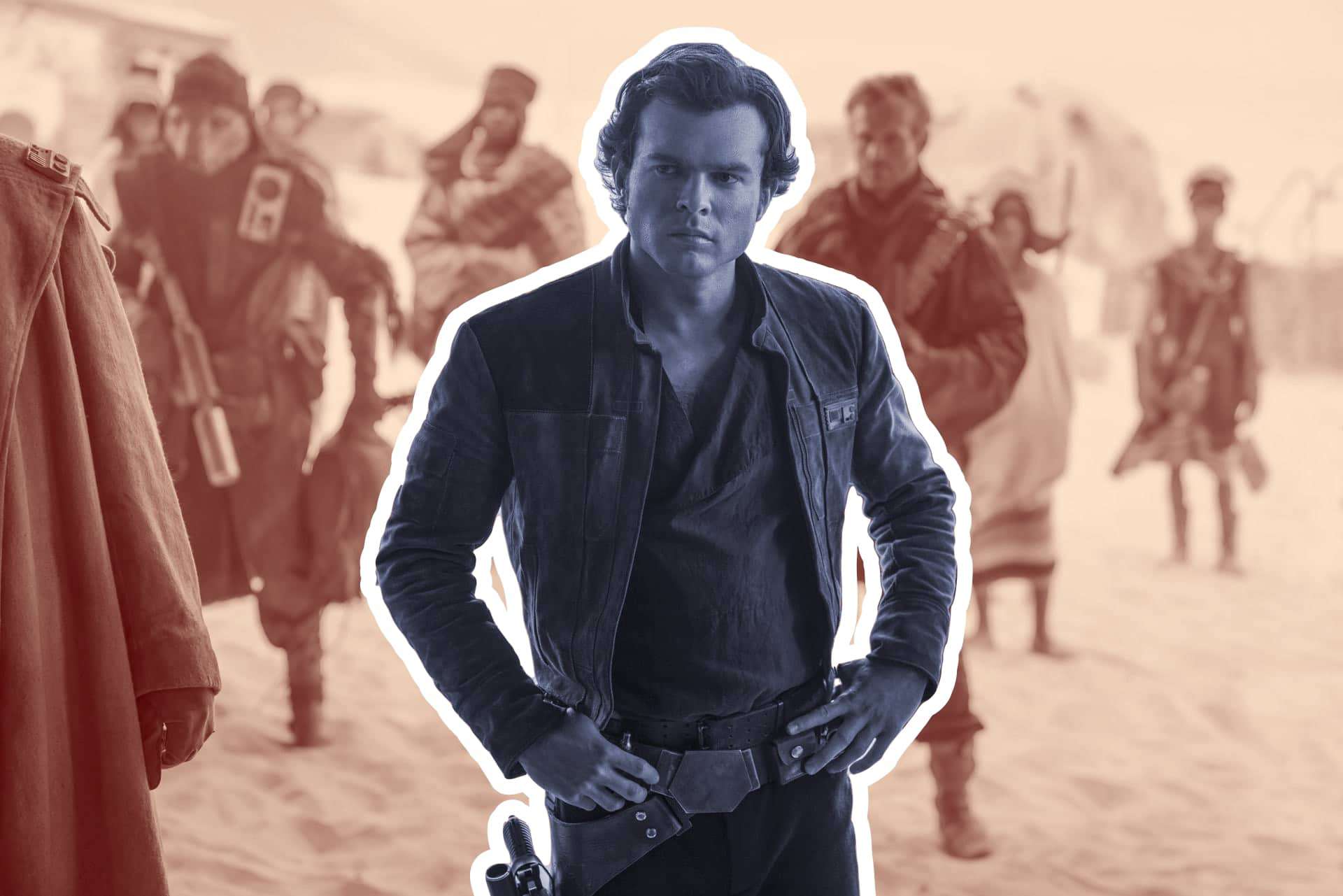What does the response to Solo say about how we engage with tentpole movies?
If you’ve spent any time reading about Star Wars in recent weeks, there’s a good chance the issue of Solo: A Star Wars Story’s shaky production has come up. Whether it be a detailed look at what the film may have looked like under previous directors Phil Lord and Christopher Miller or an angry YouTuber looking for the latest reason to get worked up about Lucasfilm president, Kathleen Kennedy.
Virtually every review out there has at least given mention to the behind the scenes troubles of Solo. While watching the film, I did find myself at times looking at the film regarding whether this or that scene felt like it was shot by Lord and Miller or replacement director, Ron Howard. All of this, in addition to a recent Twitter thread by film writer Scott Weinberg, got me thinking: Is this really how we should be watching movies?
Solo: A Star Wars Story has undoubtedly had some of the most public behind the scenes turmoil in recent history. Starting back in June of last year, when the directing duo was dropped from the project, the film’s production became the target of significant scrutiny from fans. Many called the film a disaster before even seeing a single frame, and much was said after its release about which parts of the film belonged to which director.
Stories like this are, of course, nothing new. Just last year, Justice League director, Zack Snyder stepped down and was replaced with Joss Whedon, a filmmaker with vastly different sensibilities. Even previous Star Wars standalone, Rogue One, saw last minute changes after Gareth Edwards was quietly removed from directing duties.
However, when all is said and done, and you sit down to watch the film, does any of this matter? In some cases, yes. The previously mentioned Justice League was barely able to string two scenes together without drastically changing its tone and visual style, but for the most part, these creative changes aren’t noticeable unless the viewer is actively looking for them.
This may seem like a puzzling way to watch a movie, looking for the cracks and trying to identify who is responsible for what, instead of immersing yourself in the experience. But, as viewers, we have become almost conditioned to think this way. A large part of this has to do with how much information about films we now consume ahead of time and, as a result, how much we know about the particular behind the scenes troubles of those films.
The cycle of anticipation of these movies has changed significantly in recent years. These days, we seem just to expect to have seen at least two trailers and multiple TV spots, long before sitting down to watch a movie. Look no further than the concern expressed when the first teaser for Solo didn’t drop until less than four months before the release, for an example of this.
And this natural curiosity about our most anticipated films isn’t necessarily a bad thing. Hell, I’d be lying if I said I didn’t jump to watch every featurette for the upcoming Mission: Impossible – Fallout, showing off the latest way in which Tom Cruise has endangered himself for our entertainment. But at the same time, I also felt a sense of unease reading the words of an anonymous actor on the production on Solo, not least because it felt like an unnecessary smear of Lord and Miller and was, frankly, an extremely unprofessional move from the unnamed actor, but because this information did not feel like something we, as viewers, needed to hear about.
As the previously mentioned Twitter post pointed out, many of our favorite movies were plagued with problems, but much of this information was just not publicly known, at least not until years after the films were already beloved. And even if it was well-known, audiences were undoubtedly less concerned with it.
The Wizard of Oz, widely considered to be one of the greatest films ever made, has a total of five directors attributed to it and had behind the scenes troubles that would make Solo look like smooth sailing. Even the original Star Wars faced numerous issues, but most of these details weren’t well-known until years later. And by that point, they are considered to be interesting pieces of trivia, not the main takeaway from the film.
But what can be done about this? Well, due to the level of engagement we now have with almost every stage of a movie’s production, it can be difficult to separate all of this from the films themselves. Social media has given viewers a place to consume, discuss and obsess over the most minute details of a film’s production. With each major release, the idea of turning away from all the on-set drama, at least until the dust has settled on the film, becomes more and more appealing. Finding out trivia about your favorite movies is often fun, but it’s possible that too much of this has begun to make us lose sight of what’s important here.
All of this is not to say that we should merely tune out and pay no attention to the filmmaking on display, but perhaps a greater focus on the actual films, and not what went on behind the scenes, would lead us to be happier and more engaged viewers.

